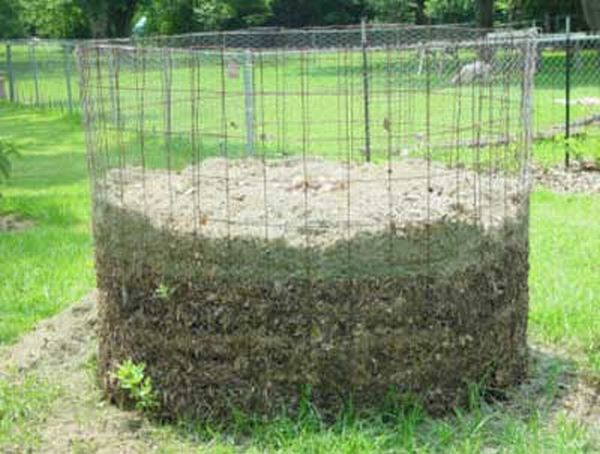
Compost is the mixture of organic matter that is decomposed in aerobic and recycled as a high quality soil amendment or a fertilizer. It is rich in a nutrient which proves to be good supplement in gardens, horticulture and also in agriculture. It has become a key ingredient in inorganic farming. It is also a good source of humus and can act as natural source of pesticide also.
Composting is the process of converting the vegetable waste, organic matter or the waste into useful substance with the help of insects, microorganism and worms. The decomposition process is carried out in a pit containing the organic matter along with suitable amount of moisture and proper aeration. The resulting product is known as black gold because of its high nutrient value, especially because of its high carbon and nitrogen content.
Difficulty: Moderate
Things required:
1. Compost bin/pile
2. Kitchen waste (excluding meat, bones, and dairy)
3. Grass clippings, leaves, saw dust. Kitchen waste
4. Paper towels, newspaper
5. Pitch fork or garden hoe
Procedure
1. You will need a compost bin which you can purchase from market or you have to build one by your own. You can make it using wood planks. An ideal compost bin should have a lid or cover and should have no gaps in the sides. It should be completely covered.
2. Place your compost bin in a convenient place, where it can be easily accessible. Your garden can be an ideal place for it. Place your compost bin in semi shaded or sunny place where it will get plenty of sunlight throughout the day as it is important for decomposition process. Remember to keep it away from water source
3. Add your kitchen waste to your compost bin. It can include vegetable, fruit scraps, tea leaves, news papers, egg shells, paper towel etc. you can also add green or dry leaves, dead plants, pulled weds, saw dust also.
First you have to make a layer at the bottom of the bin. It can be a layer of leaves, straw, twigs or hay.Then put a layer of brown materials followed by a thick layer of green materials. Then add a layer of soil. Then repeat the step again to fill the compost bin
4. Now add water to your compost bin. Remember to maintain the right amount of moisture content in the bin. It should be moist but not wet, because too much water can cause stinking.
5. You have to turn the compost once a week with the help of a large shovel or a pitch fork. It will help in decomposing the material faster.
6. After few days the compost bin will feel hot to touch, when it begin to cool down in a week turn the heap once again.
7. Your compost will be ready in six to eight weeks
8. When the compost is ready it will be dark brown, earthy smelling and rich looking. It will be best if you use this compost after one or two months. This will make it richer in nutrients.
9. Remember to turn the organic material in between to provide proper aeration. Also add adequate amount of water also in between.
Benefits
Composting is very useful in process it can be utilized in various ways:
1. As a result of composting, methane gas is released; this can be used as fuel.
2. Organic compost can be used as fertilizer alone or in combination with chemical fertilizers.
3. During composting, the waste material is reduced into slurry which is rich in nutrient content. It can be used directly as fertilizer.
4. Bio gas is the byproduct of the composting process which can be used as cooking fuel. It will reduce our dependency on LPG gas. Thus, it is a good source of renewable source of energy.
5. Biogas is also used in generating electricity and lightening of houses.
6. Biogas can be a good replacement of diesel in diesel engines.
7. Composting is not only valuable as fuel or fertilizer but also is useful in preventing environmental pollution. It kills the pathogen in the manure and makes it useful for various purposes.
8. It will decrease the load on non renewable source of energy.
9. Compost is useful to control soil erosion.
10. It can be used as landfill cover, wet land construction etc.
11. It will reclaim the nutrient value from organic waste.
12. It will improve the moisture content of the soil
Tips for better composting
1. Use your kitchen waste to make high quality compost. Kitchen waste such as vegetable peels, fruits waste, egg shells are a good source of nitrogen, which are very helpful in not only speeding up the composting process but also in improving the value of the compost.
2. Avoid adding too much of only one kind of material i.e. only leaves or only vegetable scraps.. This will slow down the composting process and also will not have that much nitrogen value.
3. Neither add too much of water, nor keep it completely dry because too much moisture content in the compost pile will lead to stinking whereas dry compost pile will hinder the process of composting
4. Keep your compost sufficiently bigger to make it aerated and it should have the capacity to handle the heat produced during the process. Proper circulation of air is very important for the breakdown of the waste and for balancing the heat produced.


